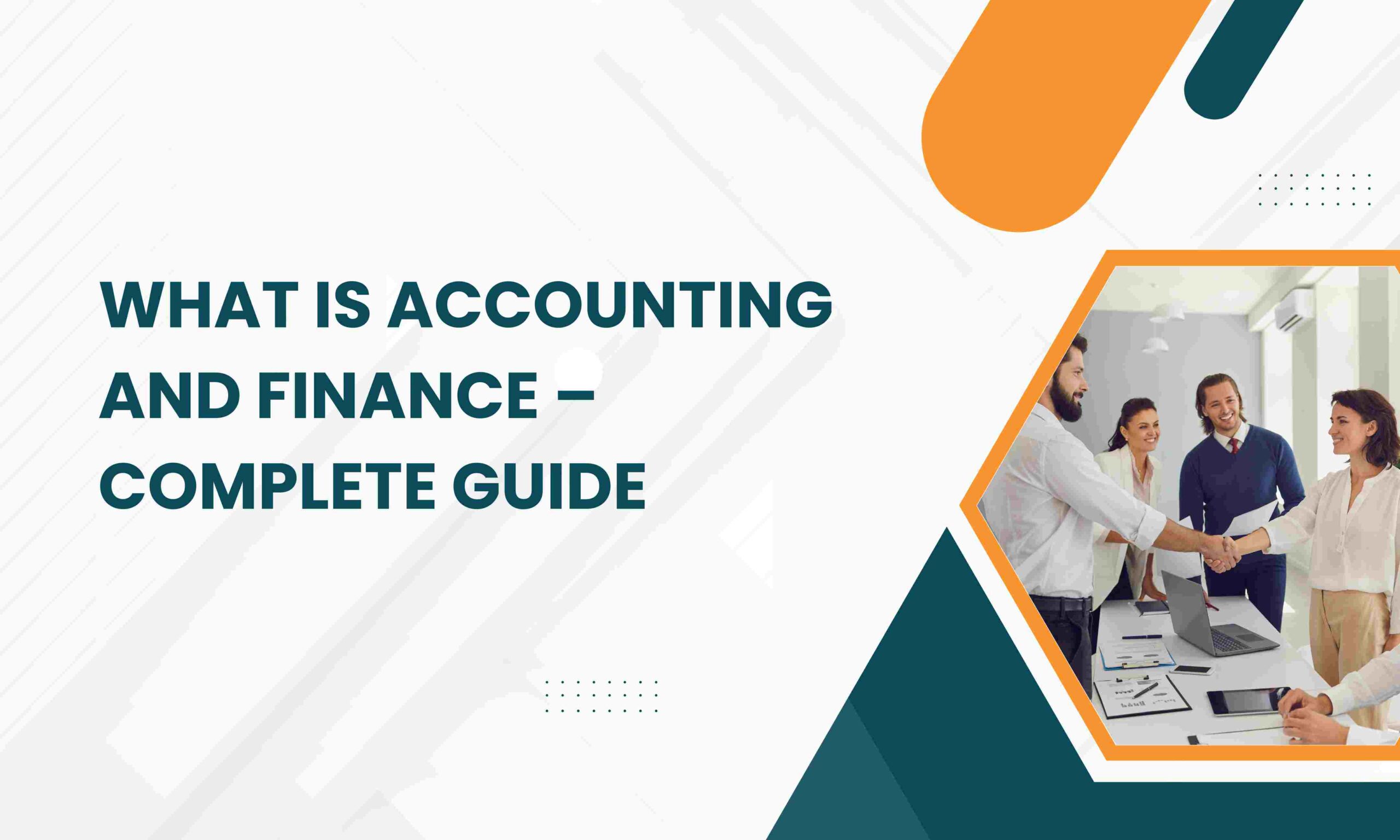Introduction
Accounting and finance are essential parts of every business, government, and non-profit organisation. They focus on managing money, tracking financial transactions, and supporting decision-making. Together, they help businesses operate legally, efficiently, and profitably.
While accounting and finance often overlap, they serve different functions. Accounting involves recording, reporting, and analysing financial information. Finance focuses on planning, managing, and investing money to meet goals.
Definition of Accounting
Accounting refers to the systematic process of recording, classifying, summarising, and interpreting financial transactions. It ensures that all business activities are documented and tracked accurately. The goal is to provide useful information for internal and external stakeholders.
Accountants prepare financial statements such as the income statement, balance sheet, and cash flow statement. These documents reflect the company’s financial health.
Definition of Finance
Finance is the management of money and investments. It includes budgeting, forecasting, investing, and analysing financial risks. Finance aims to make the best use of funds to increase the value of an organisation.
Financial professionals help with decisions about funding, capital structure, asset allocation, and long-term planning. Their work ensures that money flows in the right direction to support growth.
Key Differences Between Accounting and Finance
Although related, accounting and finance differ in purpose and function.
Accounting:
Records past financial transactions
Prepares financial reports
Ensures compliance with tax laws and regulations
Helps evaluate financial performance
Finance:
Plans for future financial needs
Analyses investment opportunities
Manages assets and liabilities
Guides financial decision-making
Accounting looks backward, while finance looks forward. Both contribute to the financial strength of an organisation.
Importance of Accounting
Accurate accounting keeps a business organised and legally compliant. It helps track income, expenses, and profitability. Businesses use accounting to file taxes, apply for loans, and report to stakeholders.
Accounting also builds transparency. It shows where money is going and where adjustments are needed. Business owners and investors rely on financial reports to assess performance.
Importance of Finance
Finance supports planning and growth. It helps determine how much money is needed, when it’s needed, and how it should be used. Good financial management protects the business from risks and economic changes.
Finance guides decisions such as launching new products, entering new markets, or investing in new technology. It ensures that businesses make smart choices with their money.
Branches of Accounting
There are several types of accounting, each with a specific focus.
1. Financial Accounting
Tracks business performance and prepares financial statements.
2. Management Accounting
Helps managers make strategic decisions through internal financial analysis.
3. Cost Accounting
Calculates the cost of products, operations, or projects.
4. Tax Accounting
Manages tax filings and compliance with tax laws.
5. Auditing
Reviews financial records for accuracy and integrity.
Areas of Finance
Finance is divided into key areas based on purpose and activity.
1. Personal Finance
Manages individual income, expenses, savings, and investments.
2. Corporate Finance
Focuses on business funding, capital structure, and investment strategies.
3. Public Finance
Deals with government spending, taxation, and budgeting.
4. Investment Finance
Involves financial markets, securities, and portfolio management.
Roles and Careers in Accounting and Finance
Many career paths are available in both fields. They are crucial to every type of organisation.
Common accounting roles:
Accountant
Auditor
Bookkeeper
Tax advisor
Financial controller
Common finance roles:
Financial analyst
Investment banker
Financial planner
Risk manager
Treasury analyst
Both fields offer job stability, career growth, and international opportunities.
Use of Technology in Accounting and Finance
Modern tools have transformed these fields. Accounting software automates bookkeeping, invoicing, and reporting. Financial modelling tools assist in forecasting and investment analysis.
Technology improves accuracy, speeds up reporting, and reduces manual errors. Cloud-based systems allow real-time access to financial data, which supports faster decision-making.
Examples of Accounting and Finance in Business
A company uses accounting to track monthly expenses and create financial reports. It uses finance to decide whether to expand operations or invest in equipment.
An accountant prepares tax returns and audits financial records. A financial analyst forecasts next year’s revenue and plans the budget. Both professionals work together to keep the business financially healthy.
Conclusion
Accounting and finance are pillars of any successful organisation. Accounting records and analyses financial activities. Finance plans, manages, and allocates money for growth and sustainability. Understanding both areas helps businesses maintain control, increase profitability, and make better decisions.
Whether for a small startup or a large corporation, strong accounting and finance practices lead to long-term success. They build trust, support planning, and ensure that every financial step moves the business forward.
Read More: Importance of Business Finance – Explained in Detail







